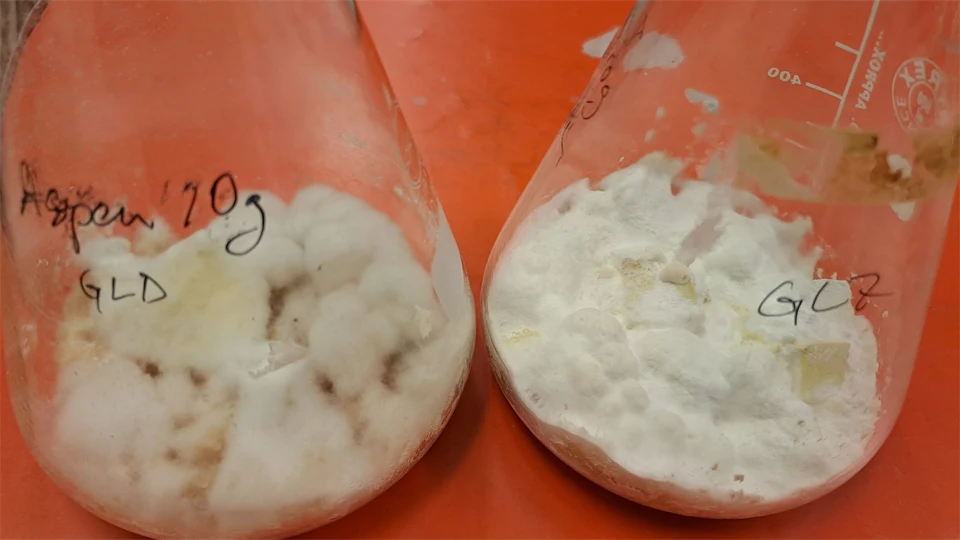Forest Industry Sustainability with Composites
The FISC project (Forest Industry Sustainability with Composites) is a cutting-edge research initiative that aims to develop innovative, biodegradable composite materials by combining fungal mycelium with lignocellulosic fibers derived from forestry byproducts.
This approach addresses two major challenges at once: reducing industrial waste and creating sustainable alternatives to plastic-based packaging.
At the heart of the project is the use of mushroom-forming fungi, which naturally convert wood residues – such as sawdust and pulp fibers – into dense networks rich in chitin and cellulose. When combined with fibers from chemithermomechanical pulp (CTMP) and enhanced using hot-pressing techniques, these natural ingredients produce strong, water-resistant, and antimicrobial bio-composites suitable for eco-friendly packaging and other applications.
FISC explores the full value chain – from raw material preparation and cultivation to composite fabrication and testing – focused on mechanical strength, moisture resistance, and hygienic performance. By optimizing these materials for food-safe packaging and similar uses, the project contributes directly to UN Sustainable Development Goal 12.2: the sustainable and efficient use of natural resources.
This short-term but high-impact project, funded by C. F. Lundströms Stiftelse, not only promotes innovation within the Swedish forest industry but also lays the groundwork for future large-scale applications. Ultimately, FISC supports a circular bioeconomy by turning forestry waste into valuable, high-performance materials –paving the way for a more sustainable and competitive forest-based manufacturing sector.
Facts
Project period
250501—260131
Research centers
Departments
Research groups
Project leader

Project members




